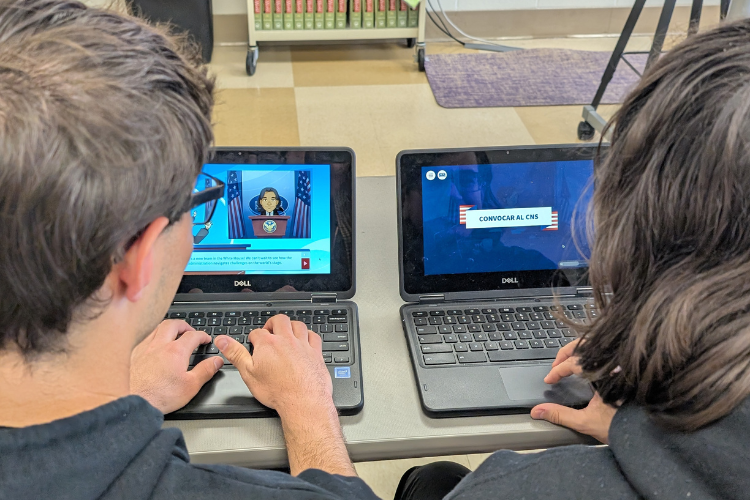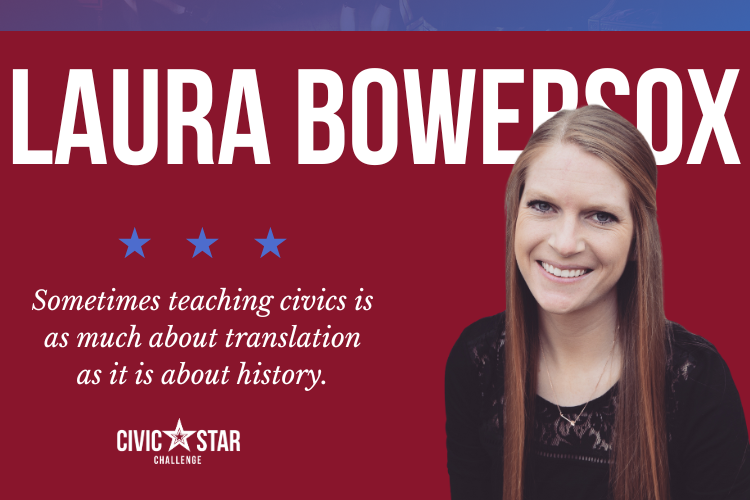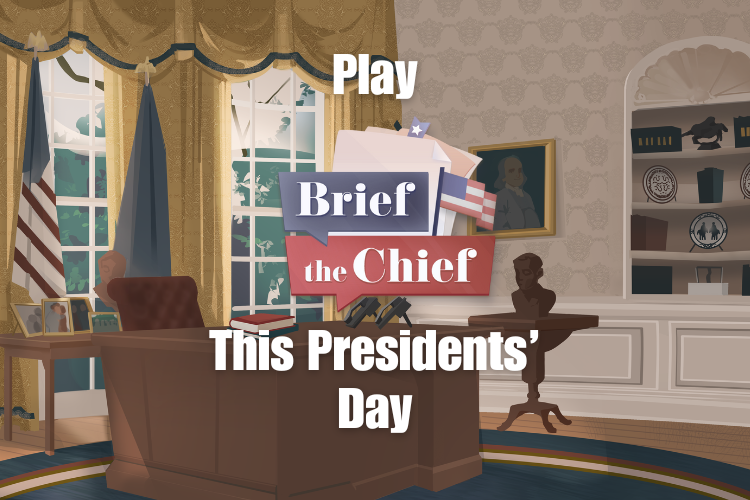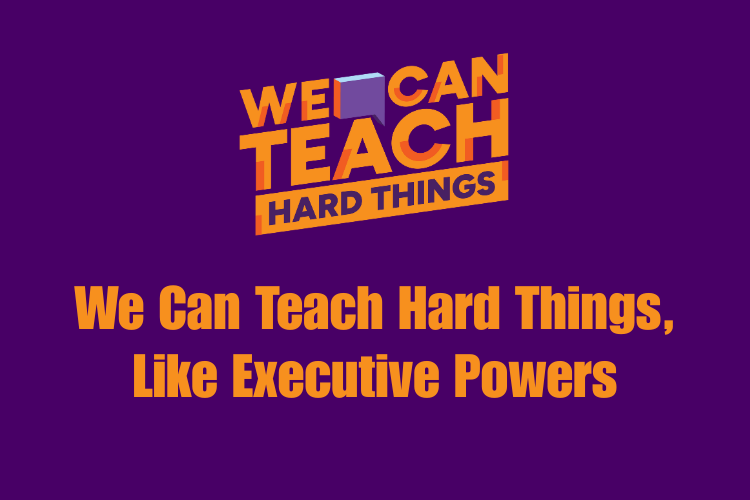Seniors in my Government & Citizenship class engage with the class material in a variety of ways. Some days, they’re deeply analyzing political cartoons, revising bills based on party pressure and Congressional testimony, or organizing evidence to argue for and against impeachment during historic presidential scandals. Other days, they play games! For multilingual students, some of these activities can be especially challenging given the cultural components of understanding symbols in a political cartoon, for example. When there’s the opportunity for English language learners to deepen their learning without the roadblock of Google Translate, it makes such a big difference!
Recently, my students began the week by examining President Nixon’s resignation letter; it’s a single sentence, so every detail matters. I started to see the power that the brief document afforded multilingual students, since they could more easily access the material. Instead of spending a chunk of class time working to translate, they spent class time really addressing the purpose of the activity: WHY those words were there, rather than what the words were. While some of our classes are co-taught with an EL/ML instructor, we all know that there are never enough resources to go around, and unfortunately, our English Language Learners don’t have access to modified assignments that might better support them. If only there were more hours in the day to create these for my seniors!
The success of the Nixon primary source activity challenged me to search for additional ways to honor my English language learners. Thank goodness for iCivics! The iCivics site includes a “Pedagogy Tags” search option, including filters for EL/ML and Spanish lesson plans, games, infographics, and slideshows. The Convene the Council game and associated resources, created alongside the Council on Foreign Relations, enabled students to learn and demonstrate understanding in Spanish without the intermediary of a clunky translation tool. When I pointed out the “Jugar en Español” option, I saw the transformation in two of my Spanish-speaking students in one hour. Their body language changed, scooting their chairs towards their Chromebooks and bending over the screen to select the Spanish option. They built avatars that looked like them, and convened their National Security Council as iCivics shared fictional global crises to which they could respond and delegate.
I know that these students would have been successful if the game had only been offered in English, but the Spanish option increased their enthusiasm and participation level. In fact, one student finished so much more quickly than usual that he thought he’d done it wrong! As he saw students around him still playing, he assumed that he must have missed something; he was used to being one of the last students to complete an assignment, not because of a lack of understanding but because of translation challenges. When I explained that he’d done a great job and played the game just right, the pride in his face reinforced how powerfully he connected to the activity. The next day (I promise I’m not making this up!), at the end of class, he came up to me to say thank you, giving me a piece of his favorite Colombian candy. It was a powerful moment: getting to access a class activity in an authentic way was so important to this student that he was still thinking about it the next day and felt compelled to show his gratitude.
Convene the Council is just one of hundreds of iCivics options that support multilingual students. I plan to use the “6 Roles of the President” Infographic next, as we deepen understanding of presidential responsibilities beyond our initial foreign policy focus. I hope these resources will help my Spanish-speaking students feel like accessing activities in their native language is part of our class culture rather than something that necessitates a show of gratitude. And it was some great candy!
Written by Megan Thompson
Megan Thompson is in her 20th year teaching social studies. She has worked with iCivics Educator Network, National Constitution Center’s Teacher Advisory Board, and Eastern State Penitentiary’s Justice Education Collaboratory. With the support of a James Madison Fellowship, she earned a master’s in political science and co-created her school’s dual enrollment program. She teaches Crime & Justice, Government, Dual Enrollment Government, and Dual Enrollment World History just outside of Minneapolis, and she leads professional development on the Supreme Court, Foundations of the American Revolution, media literacy resources, and mindfulness in the classroom. Megan’s passion is in developing rigorous and relevant classroom materials that connect the past and the present, and supporting teachers in their implementation.
Through the iCivics Educator Network, the perspectives of teachers across the country contribute to the public conversation about civic education in the United States. Each contributor represents their own opinion. We welcome this diversity of perspectives.




